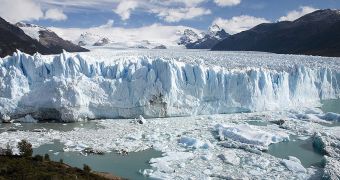Global warming seems to be causing even more than glacier meltdowns and temperature rises; it also prompts countries neighboring the Arctic to think about negotiating the division of the new stretches of sea that are currently formed by ice sheet withdrawals. The European Union is already talking about regulating the exploitation of the large amounts of hydrocarbons in the Arctic, even before the actual business opportunities occur.
"The Arctic contains large untapped hydrocarbon reserves. Arctic resources could contribute to enhancing the EU's security of supply concerning energy and raw materials in general." Furthermore, "Until a conservation and management regime is in place for the areas not yet covered by such a regime, no new fisheries should commence," a laconic EU executive report announced on Thursday.
Of the 27 states making up the European Union, only Denmark, Finland and Sweden are entitled to Arctic territories, mainly due to the fact that they already possess such lands, as for example Denmark, which has Greenland as a self-governing province. Iceland and Norway could make their own claims on the new turfs, but they are already part of the European Economic Area, which means that they will most likely come to an agreement with the European Union on the matter.
The report also stressed the fact that, along with new opportunities for navigation and resource exploitation, come serious dangers, as almost 4 millions European citizens are at risk of floods, along with about 2 trillion Euros' worth of goods and assets. The European executive is currently trying to cope with the fact that, at the moment, the Arctic ice spreads are 50 percent lower than they were in the 1950s during the summer, when the shelves recede naturally.
In its announcement, the Union made it perfectly clear that all future fossil fuel exploitations in the newly-cleared territories will be done under the strictest of environmental regulations, in such a manner that they will ensure the process of ice deterioration in the region is not accelerated by economic activities.

 14 DAY TRIAL //
14 DAY TRIAL //